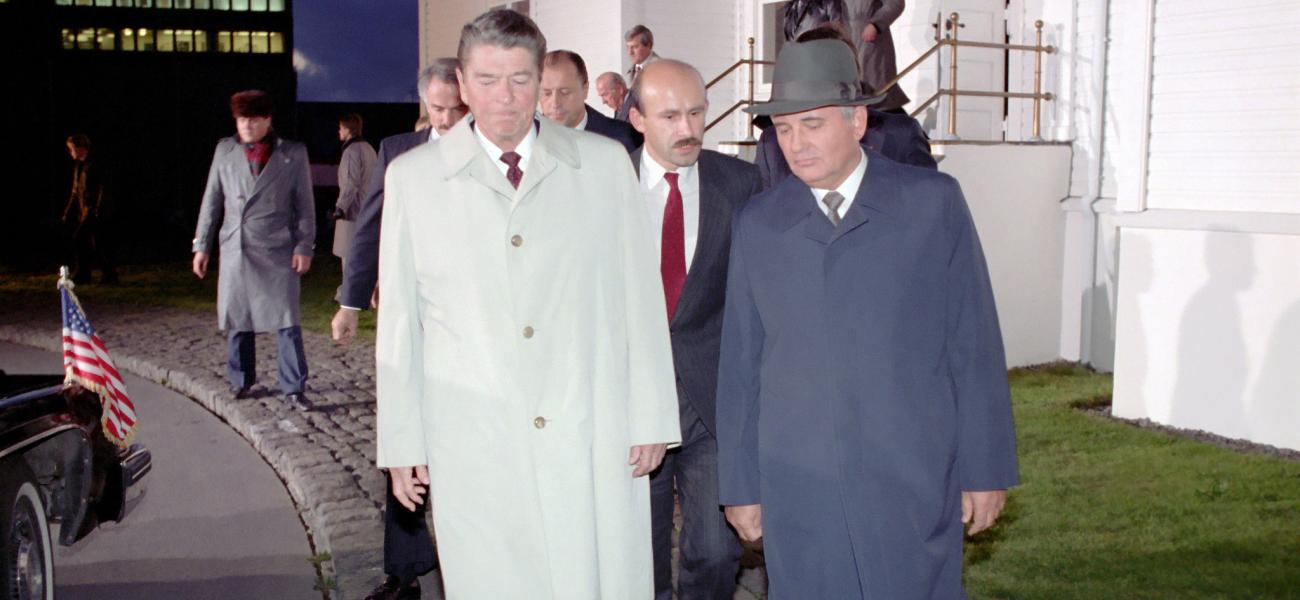
Why the Arms Race Is Still White Hot Decades After the Cold War Ended—and How to Stop It
This is a summary of an article originally published by The Washington Post with the subheading: "Only a major culture change can triumph over the military-industrial complex."
The author writes that the Trump administration's "looming withdrawal" from the INF Treaty shows that the arms race has "outlasted the Cold War." To slow this down, the author argues that the world needs not only visionary leaders, like Gorbachev and Reagan, but a military and political cultural change. The Reykjavik summit "prompted a … backlash against arms talks in the Pentagon and the White House" driven by "[t]he culture and conceptions of power tied to understandings of national security." For the military and its allies, nothing guarantees America's global supremacy like nuclear weapons, while also providing "political influence for the national security establishment." The authors writes that "[t]he force of the reaction against nuclear arms control in the second Reagan administration raises a troubling question: did the Cold War arms race actually end, or have we merely sat through a 30-year intermission?" Rather than progressing or even sitting in neutral, arms control is going backward across the world. "To break that vicious cycle requires more than wise leaders, … It requires a broader change in how the American people and their defenders think and talk about national security.”
Read the full article at The Washington Post.
Jonathan Hunt
Jonathan Hunt is a lecturer in modern global history at the University of Southampton and a visiting scholar at Harvard’s Davis Center.
Photo from the Ronald Reagan library shared under a CC BY 2.0 license.

